Semiconductor chip manufacturing is one of the areas the US has wanted to cooperate with Vietnam in recent times. This is also an opportunity for domestic semiconductor businesses to accelerate in the coming time.
VietNamNet reporter had a talk with Mr. Tran Dang Hoa, Chairman of FPT IS - a member company of FPT Group - and Chairman of FPT Semiconductor, to hear about the potential and opportunities for Vietnamese enterprises operating in this field.
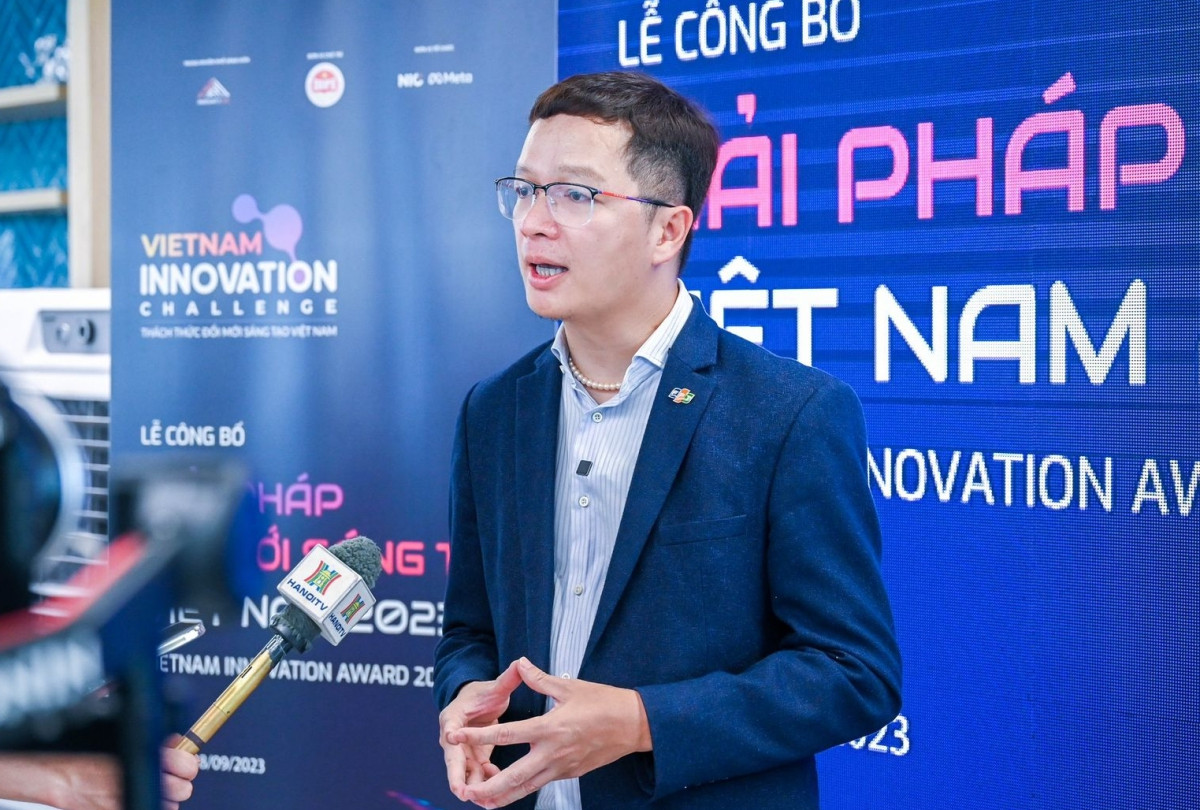
Reporter: Can you tell us how many employees FPT currently has working in the semiconductor field and how FPT's chip manufacturing process is carried out?
Mr. Tran Dang Hoa: In March 2022, FPT Semiconductor Joint Stock Company (FPT Semiconductor) was officially established to focus on the semiconductor sector. The establishment of FPT Semiconductor is also a continuation of the semiconductor dream of many generations of fathers and brothers from 1979 to the present.
Regarding human resources, FPT Semiconductor currently has 100 employees in Vietnam (Hanoi, Da Nang, Ho Chi Minh City) and 50 employees abroad (Japan, Taiwan). We have also recently established an R&D Center in Da Nang, in which, developing resources and cooperating with Da Nang in strongly promoting the semiconductor chip field are being set out with specific plans.
FPT Semiconductor's first generation of products is the Power Management IC line. In 2022, FPT designed and manufactured 3 power chip lines, and it is expected that in 2023, there will be 7 new chip lines.
In particular, the first microchip line applied in Internet of Things (IoT) products in the medical field with the criteria "Chip Make in Vietnam, Made by FPT" launched in 2022 has marked the name of FPT Semiconductor on the world chip technology map. This is considered a breakthrough in the journey to affirm Vietnamese intelligence.
In 2023 and early 2024, FPT Semiconductor will continue to design and manufacture IoT platform chips for smart device applications, IoT for agriculture, forestry, and aquaculture. To optimize costs and revenue, FPT Semiconductor chooses popular technology in the world, which is 130nm and 180nm, not advanced technology.
In 2022, we have the first chip supply contract for partners, with an order of 25 million chips in 2 years, 2024 and 2025. Currently, we have gone through the R&D phase, to the mass production phase. Recently, FPT has received an order of 70 million chips in 2024 and 2025 for customers in Taiwan (China), Korea and Japan in the field of medical equipment and many electronic applications. This number is nearly 3 times higher than the plan.
Recently, the Semiconductor Association of Southeast Asia (SEMI SEA) also awarded membership certificate to FPT Semiconductor.

How does FPT Semiconductor evaluate Vietnam's chip production potential, sir?
Vietnam is considered to have potential to develop the semiconductor industry. In fact, there are more than 40 companies in Vietnam working directly in the IC design industry. And the number of direct employees is more than 5,000 engineers.
According to the Ministry of Information and Communications, Vietnam ranks third in semiconductor chip exports to the US, after Malaysia and Taiwan. Revenue from the US market of the Vietnamese chip industry increased by 74.9%, from 321.7 million USD in February 2022 to 562.5 million USD in February 2023, accounting for 11.6% of the market share. This is also the seventh consecutive month that "Made in Vietnam" chips have achieved more than 10% market share in this country.
Vietnam is gradually gathering many manufacturing plants moving from China to Vietnam. The number of chips consumed in the coming time will grow even more. Vietnam can become a source of semiconductor engineers for US companies, or chip manufacturing companies in the US and is expected to train and provide 50,000 semiconductor engineers by 2030. These engineers will work in the US, Japan, Taiwan (China), and South Korea. This is a national resource development program.
Recently, American businesses said they will invest heavily in the chip sector in Vietnam. Does FPT Semiconductor see this as an opportunity for itself and what does it expect from this opportunity?
Recently, FPT Semiconductor has signed a strategic cooperation agreement with Silvaco Company - a major technology partner from the US to develop semiconductor human resources and promote business in this potential field. We provide IP (Intellectual Property) on Silvaco's platform for this company to provide to customers. Silvaco and FPT also cooperate to develop business in the fields of Standard Cell, IO, Memory design. In the long term, Silvaco becomes a strategic investor of FPT Semiconductor JSC. FPT Semiconductor is also the representative and exclusive distributor of Silvaco's software in the semiconductor field in Vietnam.
FPT also pledged to promote investment in the US, develop AI and the semiconductor industry at the Vietnam-US Summit on Innovation and Investment held during President Joe Biden's visit to Vietnam.
By the end of 2023, FPT will have nearly 1,000 employees in the US and plans to invest $100 million per year in the next five years in the US. The group expects to create an additional 3,000 jobs by 2028 and achieve $1 billion in revenue from the US market by 2030.

According to FPT Semiconductor's assessment, can Vietnamese enterprises meet the conditions set by US enterprises when investing in chip production in Vietnam?
Vietnamese enterprises need to focus on improving competitiveness, investing in R&D, improving product and service quality, complying with intellectual property regulations, data management and enhancing innovation.
Could you tell us what policies are needed to promote the development of the chip manufacturing industry in Vietnam?
Organizations and enterprises need support and facilitation from the Government to encourage cooperation between enterprises in the semiconductor sector in Vietnam and around the world. This includes negotiating and signing trade agreements, creating a stable and transparent business environment, promoting training and developing high-quality human resources in technology.
We have proposed to the Ministry of Information and Communications and the Ministry of Science and Technology to establish an alliance to serve the construction of a semiconductor chip manufacturing plant. If this alliance is established, this will be a national program of very large scale.
In addition, Vietnam is seriously lacking in human resources in the semiconductor industry, and there are not many universities that specialize in this field. Therefore, the country needs to focus on investing in building a young, highly skilled, and well-trained human resource. Contributing to realizing this goal, FPT University recently announced the establishment of the Semiconductor Microchip Faculty to supplement the high-quality human resource shortage in Vietnam. The Faculty is expected to welcome the first batch of students in 2024 with the orientation of specialized training in microchip design and conducting research for the semiconductor microchip industry in Vietnam.

Source


![[Photo] Many people in Hanoi welcome Buddha's relics to Quan Su Pagoda](https://vphoto.vietnam.vn/thumb/1200x675/vietnam/resource/IMAGE/2025/5/13/3e93a7303e1d4d98b6a65e64be57e870)
![[Photo] Prime Minister Pham Minh Chinh receives Ambassador of the French Republic to Vietnam Olivier Brochet](https://vphoto.vietnam.vn/thumb/1200x675/vietnam/resource/IMAGE/2025/5/13/f5441496fa4a456abf47c8c747d2fe92)
![[Photo] President Luong Cuong attends the inauguration of the international container port in Hai Phong](https://vphoto.vietnam.vn/thumb/1200x675/vietnam/resource/IMAGE/2025/5/13/9544c01a03e241fdadb6f9708e1c0b65)

![[Photo] President Luong Cuong awarded the title "Heroic City" to Hai Phong city](https://vphoto.vietnam.vn/thumb/1200x675/vietnam/resource/IMAGE/2025/5/13/d1921aa358994c0f97435a490b3d5065)




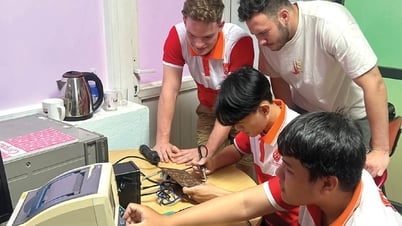






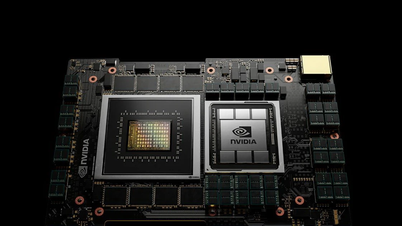


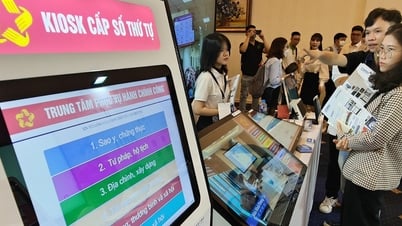





























































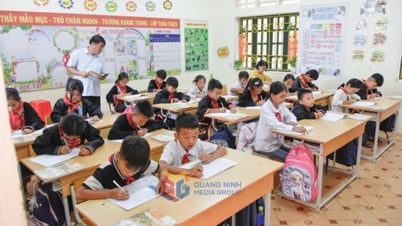




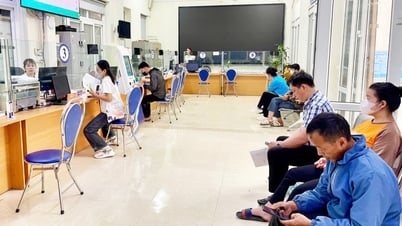










Comment (0)